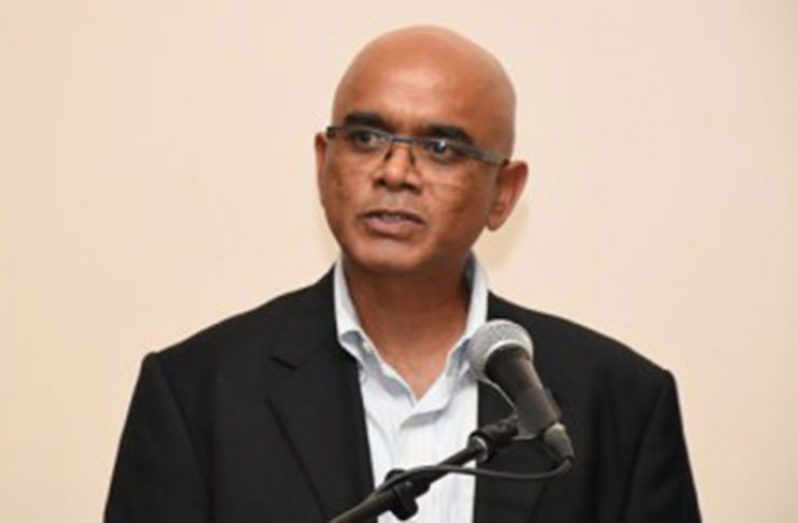— says WWF-Guianas director
WWF-Guianas Director Dr. David Singh has stressed that Guyana should remain committed to its “green” development trajectory, as it contends with the ramifications of the COVID-19 pandemic and its oil production.
According to Bloomberg Green, global carbon dioxide emissions will fall by 2.6 billion metric tonnes in 2020 (eight per cent of total emissions), which is the largest fall in history. This has been attributed to the lockdown measures put in place to help curb the spread of the novel coronavirus, which has resulted in a decrease in global productivity.
However, despite this slowdown in productivity and a decrease in demand for energy to fuel production, the climate-focused agency reported that the demand for renewable energy sources is growing.
In fact, Bloomberg Green reported, “… renewables in many countries get first priority to feed electricity into the grid. That means producers of solar, wind, and hydropower can sell all of the power they produce even as fossil-fuel generators turn down or shut off completely to prevent a system-overload. Solar and wind farms have also benefited from windier and sunnier conditions than normal in some places.”
Cognisant of this, Dr. Singh, also former Executive Director of Conservation International Guyana, once again urged that Guyana remain committed to its “green’ developmental pathway.
Guyana’s current “green” development guide, the Green State Development Strategy (GSDS), articulates that the country’s natural resource wealth will be used sustainably to support economic resilience and build human capital. In this specific context, it is also aimed at building greater economic resilience by diversifying production and reducing Guyana’s dependence on fossil fuels by generating renewable energy.
Director of the Department of Energy Dr. Mark Bynoe had said that Guyana’s oil revenues would be used, at least in part, to fund this “green” agenda. The revenues accrued so far have been placed into the Sovereign Wealth Fund (SWF) and cannot be accessed unless there is parliamentary approval, or in cases of emergency.
However, the GSDS was not presented to nor debated in the previous Parliament and the longevity or even existence of this strategy could be threatened, according to Dr. Singh.
Despite this, and in the context of the current political impasse, Dr. Singh indicated that Guyana will have to expect some “losses” in its developmental pathway.
“I don’t think we can expect to right the ship as quickly as we want to right it,” he said, adding however that it is important for the country and for Guyanese to be conscious of those aims and objectives that need to be fulfilled.
“For me, I would like to hold onto our intact ecosystems,” Dr. Singh said. “Securing our ecosystems means that we don’t make horrible decisions for our forests and freshwater, which would result in us simply losing it.”
Additionally, he highlighted that he would also like to see the continuation of the local government reform started in 2015 by President David Granger. This, he explained, would allow devolution of decision-making which augurs well for community development.
“In my view, if rights holders are equipped or are enabled to make decisions for themselves, then their ecosystems and those things that are important to them will be better cared for,” he said.



.jpg)











